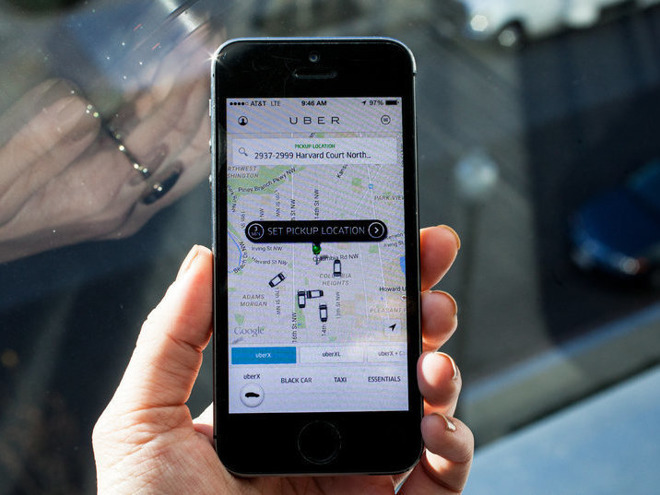SoftBank offers to acquire Uber shares at 30% discount, devaluing company by $20B
A group of investors led by Japan's SoftBank has reportedly made an offer to buy shares of ride-hailing service Uber, but the tender offer values the firm at a 30 percent discount, with the proposed price per share effectively knocking $20 billion off the value of the company.
SoftBank Group's offer is based upon a valuation of Uber Technologies at $48 billion, down from its most recent valuation of $68.5 billion, sources of Reuters claimed on Monday. The investment, apparently approved by Uber's board members in November, effectively puts the value at below the $51 billion the firm was supposedly worth in 2015.
It is believed the SoftBank consortium, which includes the Dragoneer Investment Group, plans to take a stake of at least 14 percent in Uber through the deal, with investors given a month to provide their response to the offer. If too few share owners respond positively to the proposal, SoftBank has the option to walk away, though it is also expected to make a separate investment of $1 billion.
If successful, the deal would also put into motion a number of other changes that would affect the company, including governance changes that would limit the voting power of some early shareholders, as well as reduce the influence of former Chief Executive Travis Kalanick. The board would also be expanded from 11 members to 17, with the SoftBank investor group acquiring two of the new seats.
Investors apparently expected the discounted offer price, which seemingly rectifies the valuation of the firm following after a year of scandals and criticism. Arguably the biggest issue of the year was the resignation of Kalanick as Chief Executive, prompted by pressure from major investment firms wanting changes to the company's management in the wake of numerous issues. .
Under new CEO Dara Khosrowshahi, Uber has attempted to change its corporate culture and its public perception. One early move was a vow by the firm to stop the extending tracking function of its iPhone app, a feature that let the company continue tracking rider movements for up to five minutes after a trip.
In the last year, Uber has also come under fire for its alleged theft of intellectual property from Waymo, creating a "Hell" app for tracking drivers from main rival Lyft, breaking App Store rules by identifying user devices by hardware ID, and losing its license to operate in London over public safety and security concerns.
Last week, it was revealed Uber had been the victim of a major hack of its systems, with the data from 50 million customers and around 7 million drivers acquired in the breach. While Uber could have informed authorities of the breach, which took place in October 2016, the company instead chose to pay the hackers $100,000 to delete the data.
The SoftBank offer's discount is unusual as, though nearly all share purchases by new investors from existing shareholders are discounted based on the company's valuation, the discount in this instance is fairly substantial. This is especially notable considering reports that Uber plans to hold an IPO in 2019.
Paul Haslett, co-founder and head of investments at EquityZen, told the report such valuation cuts happen if the company is at risk of being sold at a heavy discount, though apparently this isn't the case for Uber. "It really comes down to a re-pricing of Uber's value," suggests Haslett.
 Malcolm Owen
Malcolm Owen












 William Gallagher
William Gallagher
 Christine McKee
Christine McKee
 Michael Stroup
Michael Stroup
 William Gallagher and Mike Wuerthele
William Gallagher and Mike Wuerthele


 Chip Loder
Chip Loder







